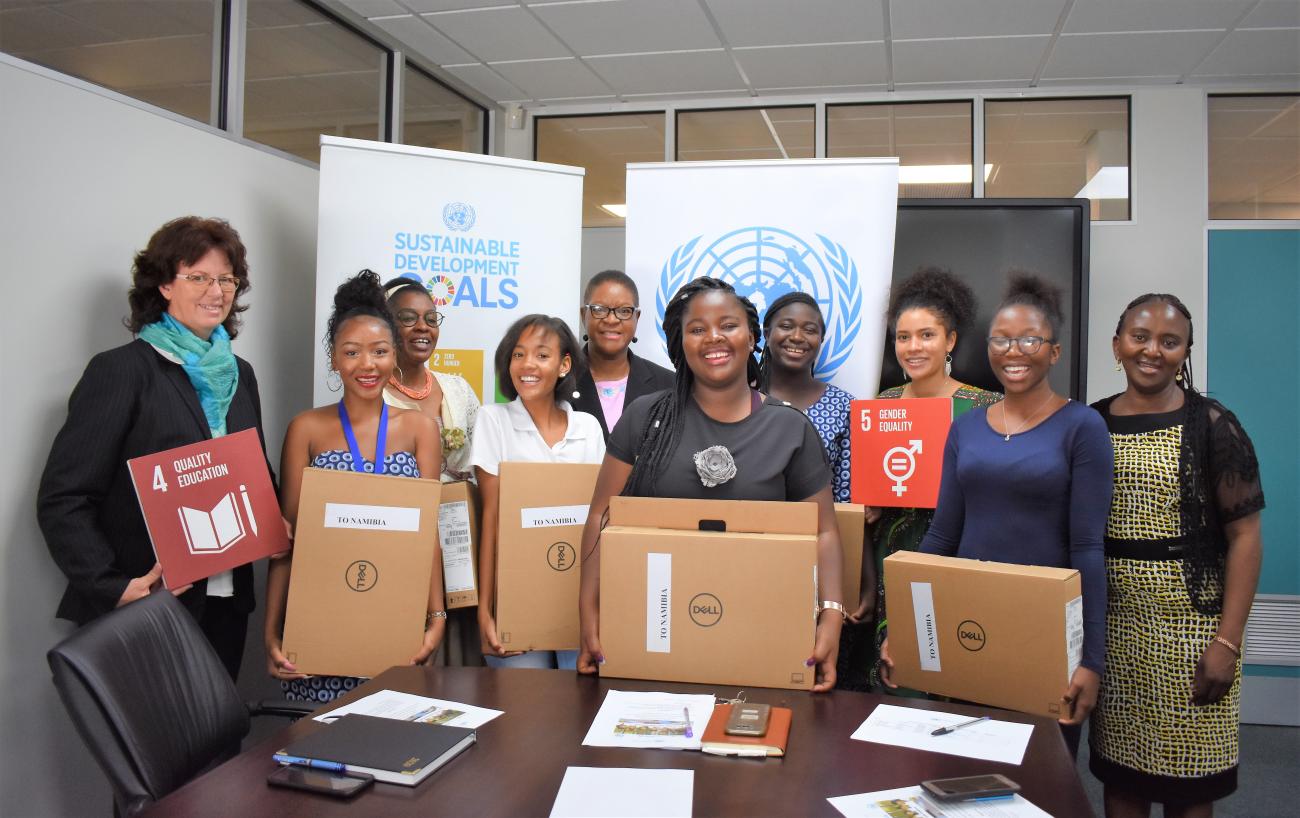In April 2019, a group of six Namibian high school girls joined 39 other girls from Botswana, Eswatini, Lesotho, South Africa, Tanzania, Zambia and Zimbabwe to participate in the “African Girls Can Code,” (AGCC) camp held in Pretoria, South Africa. The AGCC programme aims to reach 2000 girls from across the African continent with digital literacy skills, including coding, programming and leadership skills.
Ngurinuje Tjivikua, a Rocky Crest 2019 high school matriculant recalled the life changing experience, “they taught us that we can do anything we want to… I will live to not only be a consumer, but to be a creator.”
On 27 January, the group of girls visited the UN House in Namibia to start their journey of putting their coding skills into action. During a short handover ceremony of a laptop for each girl, UN Namibia in partnership with the Ministry of Education, Arts and Culture graced the event to demonstrate their unequivocal support of the group of ‘coding girls’.
UN Resident Coordinator a.i. Ms. Rachel Odede congratulated the girls on completing the programme and representing Namibia. During her address she said, “if young girls and women do not have the training and access to ICTs they will be left behind.” Odede added, “teaching girls to code is needed to close the gender gap in the technology world, and the overall gender digital divide.” Ms. Odede quoted Lupita Nyongo’s 2014 Ocsar acceptance speech to encourage the girls to continue believing in their dreams, she told the girls, “no matter where you’re from, your dreams are valid.”
Ms. Edda Bohn, Deputy Executive Director for the Ministry of Education, Arts and Culture (MOEAC) appealed to the girls to reach out to the community, especially out of school youth to utilise their new skills and plough back into mainstream learning. She underscored the good partnership with the UN Namibia, in enabling such fundamental and active learning opportunities beyond books to Namibian girls.
Ngurimuje Tjivikua, was 19 years old at the time of attending the workshop and delivered a testimony of the impact the programme has had on her and the fellow girls. “I’d like to take this moment to thank UN Women, the African Union (AU), ITU and everyone that made it possible for us to learn and be empowered as young girls today, to be strong leaders of tomorrow and empower the girls that come after us.”
Globally, only 28.4% of people engaged in science, technology, engineering and maths (STEM) careers are women, and in Sub Saharan Africa, an average of 30% are women. 90% of future jobs will require information communication technology skills and it is estimated that some 2 million jobs will be created in STEM fields. The “African Girls Can Code,” is a 4-year (2018-2021) programme jointly implemented by the African Union (AU), the International Telecommunications Union (ITU) and UN Women.









